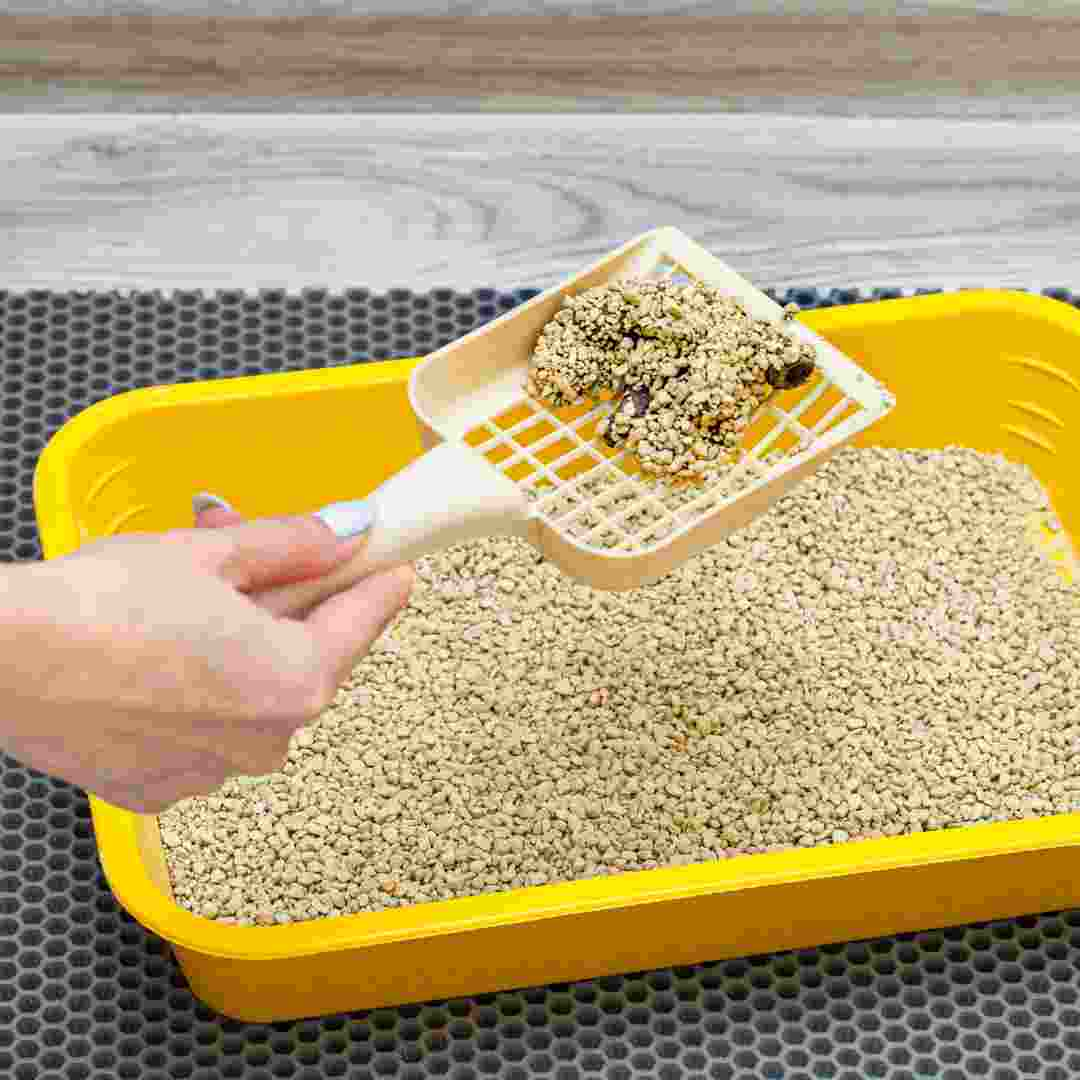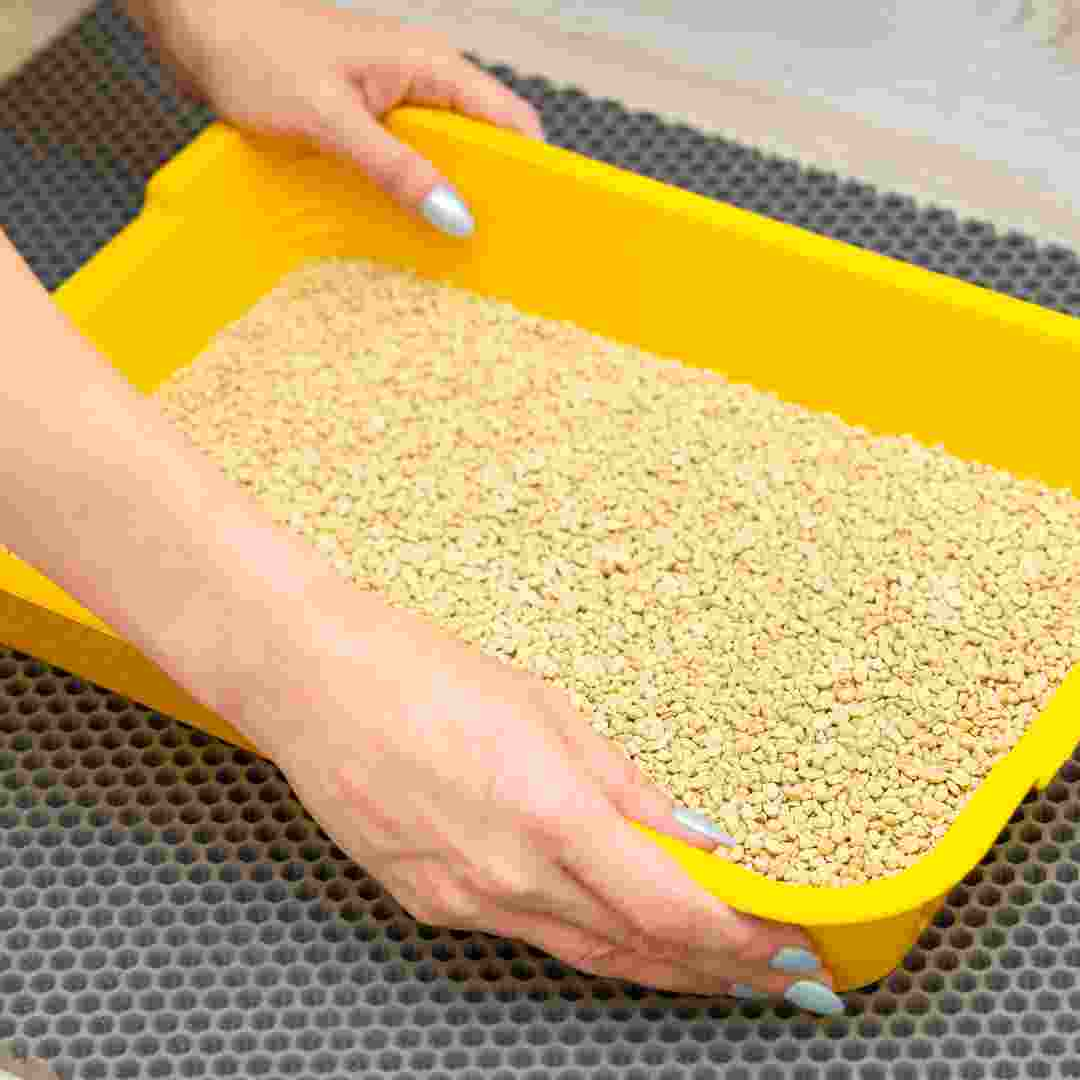Contents Table
Introduction
Training Your Rabbit to Use a Litter Box
Benefits of Rabbit Litter Boxes
Which Rabbit Litter Box Litter Should You Use?
Rabbit Litter Box Cleaning and Maintenance
Avoid these mistakes while training your rabbit to use a litter box
Q&A
Conclusion
Introduction
Rabbits are smart and curious, so they may learn to utilise litter boxes. Rabbits may utilise litter boxes like cats with patience and teaching. This can help keep your rabbit's home clean and odor-free. It also cuts rabbit cleanup time. You can train your rabbit to use a litter box and clean your home with the appropriate approach.
Training Your Rabbit to Use a Litter Box
Responsible pet ownership requires litter box training for rabbits. Rabbits are clean and easy to train to use litter boxes. In weeks, you may train your rabbit to use a litter box with care and consistency.
First, get a rabbit-sized litter box. Your rabbit needs room to move in the litter box. Put the litter box where your rabbit hangs out.
Fill the litter box with rabbit-safe litter. Ingesting clumping litter is harmful. Instead, use paper or recycled newspaper litter.
Training can begin when the litter box is installed. Place your bunny in the litter box and gently urge use. To get your rabbit to use the litter box, put treats in it.
Treat your rabbit when they use the litter box. This will reinforce good behaviour.
Finally, clean the litter box often. This will keep your rabbit healthy and odor-free.
You can teach your rabbit to use a litter box with patience and consistency. It will keep your rabbit healthy and your home clean.
Benefits of Rabbit Litter Boxes
A litter box is vital for rabbit owners. It makes rabbit waste management easy and hygienic and keeps your home clean and odor-free. Rabbit litter boxes have several advantages.
First, a litter box keeps your rabbit's home clean. Rabbits prefer a specific waste area and are naturally clean. You can keep your rabbit's living space clean and safe by using a litter box.
Second, litter boxes keep homes clean and odor-free. Rabbit excrement can stink up your home without a litter box. Litter boxes contain waste and freshen the home.
Third, a litter box can help your rabbit stay healthy. Rabbit faeces can spread bacteria and parasites without a litter box, causing health issues. Waste is contained and infection is reduced by a litter box.
Lastly, a litter box can make your rabbit happier. Rabbits prefer a specific waste area and are naturally clean. Your rabbit can feel more secure in a litter box.
Finally, rabbit owners need litter boxes. It makes rabbit waste management easy and hygienic and keeps your home clean and odor-free. It can lower your rabbit's health risks and improve their comfort.
Which Rabbit Litter Box Litter Should You Use?
There are several aspects to consider when choosing rabbit litter. First, check the litter for rabbit safety. Avoid litters with scents, dyes, or other substances that can hurt your rabbit. Second, the litter should be absorbent and easy to clean. Natural litters like wood pellets, paper, or hay are best for rabbits. These rabbit-safe materials are absorbent and easy to clean. Finally, dust-free litter is essential. Look for dust-free litters to avoid irritating your rabbit's respiratory system. With these factors, you can find the right rabbit litter.
Rabbit Litter Box Cleaning and Maintenance
Maintaining your rabbit's litter box is vital to its health and happiness. The litter box should be cleaned regularly to keep your rabbit's habitat clean and odor-free. Keep your rabbit's litter box clean with these recommendations.
1. Select a litter. Rabbits like natural litter like wood shavings, paper pellets, or hay. Avoid clumping litter, which can harm rabbits if eaten.
2. Change litter frequently. Your rabbit's litter box should be changed every one to two weeks, depending on its size. Helps maintain litter box clean and odor-free.
3. Do litter box cleaning. Change the litter and clean the box with warm, soapy water. This will eradicate old bacteria and odours.
4. Watch your rabbit. Something may be amiss if your rabbit is not utilising the litter box. If your rabbit seems sick or injured, take it to the clinic.
Follow these steps to keep your rabbit's litter box clean and odor-free. Your rabbit will stay healthy and happy with regular care.
Avoid these mistakes while training your rabbit to use a litter box
1. Delayed Litter Box Introduction: Early litter box introduction is crucial for rabbits. This will clarify the notion and make it easier to utilise.
2. Not Using the Right Litter: Rabbits need specific litter. Ingesting clumping litter is harmful. Instead, choose paper or wood pellet litter.
3. Not Cleaning the Litter Box: Regular litter box cleaning keeps it clean and odor-free. This will also assist your rabbit use the litter box.
4. Lack of Space: Rabbits require room to move and feel comfortable. Ensure your rabbit has adequate room to turn around in the litter box.
5. Not Putting the Litter Box in the Right Place: Put the litter box in a quiet, private corner of your home. This will make your rabbit feel safe in the litter box.
6. Not Rewarding Good Behaviour: Positive reinforcement helps rabbits use the litter box. Reward your rabbit with food or praise for proper litter box use.

Q&A
1. Do rabbits use litter boxes?
Yes, rabbits can learn litter box use.
2. What litter should I use?
Use rabbit-specific litter such wood pellets, paper, or hay. Clumping litters can poison rabbits if eaten.
3. How can I teach my rabbit litter box use?
Put your rabbit in the litter box after eating or playing. Praise and treat them for using the litter box.
4. How often should I clean the litter box?
Weekly litter box cleaning is recommended. Replace filthy litter with new.
5. What should I do if my rabbit doesn't use the litter box?
If your rabbit doesn't use the litter box, move it or change the litter. Cleaning the litter box more often may be necessary.
Conclusion
Thus, rabbits can be educated to use litter boxes but do not naturally do so. Provide a safe and comfortable home for your rabbit and train them patiently and consistently. Rabbits may be terrific pets and litter box users with the appropriate approach.
